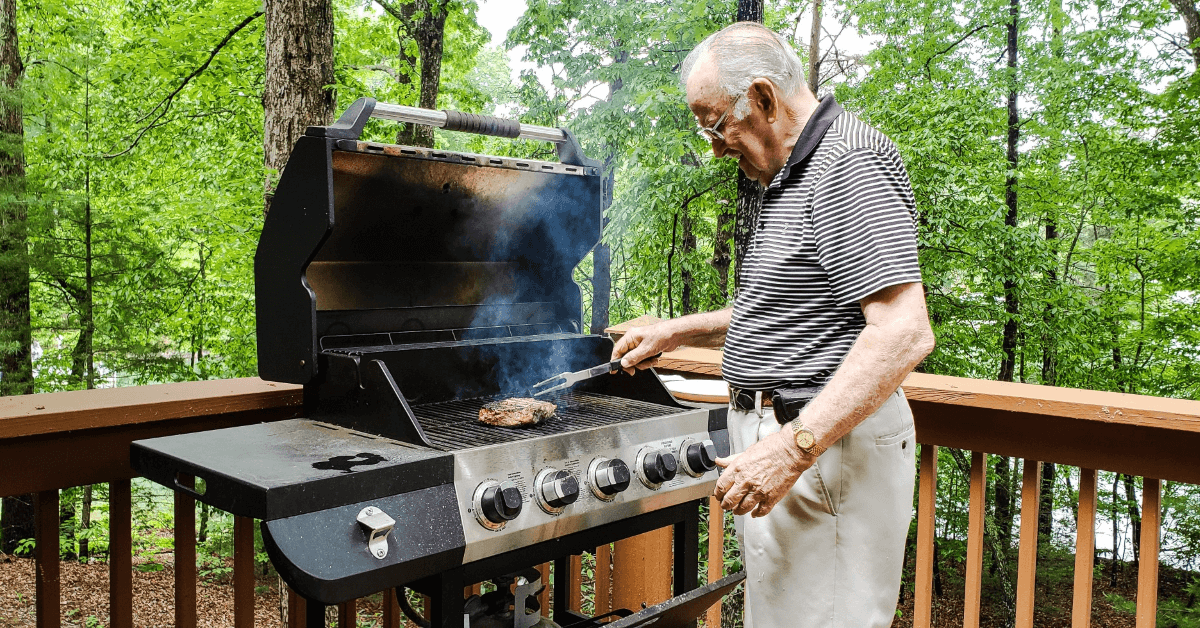Propane gas is used in many residential and commercial buildings for heating, hot water, cooking, and energy generation. Many grill masters like to heat their barbecues with propane. Also, propane tank maintenance is essential for people’s safety. We all agree that propane gas is a cost-effective and efficient source of electricity. But did you realize that mishandling propane can cost you your home or even your life? To avoid all these mishaps and to get the best BBQ experience, visit Grill Tanks Plus. We are pretty enthusiastic about changing your outside space into something functional and pleasurable.
Propane Tank Storage
Note that propane tanks should never be stored in a shed, garage, basement, or attic or transported indoors for any reason — they should always be stored in a dry, open, well-ventilated place outside. Only put your gas tank indoors if it has been entirely depleted of propane. Keeping a tank indoors might cause the temperature within the tank to rise, posing a fire risk. Never leave a propane tank in your car. In the off-season, protect your grill from smoke and dust by wrapping it with a grill cover or a rope-secured tarp. To safeguard a freestanding grill from rusting, place it in a dry, fabulous location of the garage or shed.
Transporting and Filling
Here are some pointers for propane tank handling, filling, and storing:
- Check the date stamped on the propane bottle; do not refill if it is past its expiration date.
- Before replenishing, the attendant should ensure no apparent corrosion or dents on the container, that the valves close properly, and that the tank has an overfill protection feature.
- In the car, a propane container should be carefully stowed. Please place it in the trunk or as far back as possible in the car. Another idea is to wrap a seat belt around the tank for the trip home.
What to do If You Smell Gas
- Extinguish any smoking materials and open flames immediately.
- Remove everyone from the area where you believe the gas is leaking.
- Turn off the propane tank’s gas supply valve.
- Contact your propane supplier once you’ve moved away from the leak if you are unable to contact them, dial 911.
- Please return to the area only when your propane retailer, an emergency responder, or a qualified service professional determines it is safe to do so.
What can happen if propane tanks are not handled properly?
Serious safety risks, such as fire or explosion, can occur as a result. When the propane supply runs out and an appliance valve is left open, a leak may occur when the system is refilled with propane. Air and moisture may enter an empty or drained storage tank, causing rust buildup within the tank. Rust can decrease the strength of propane’s odor, making it more difficult to detect. Any pilot lights on your equipment will go off if your propane tank runs out of gas. If not managed appropriately, this can be pretty harmful.
Conclusion
Keep propane tanks outside in well-ventilated settings. The best setting is a flat, level outdoor location that is out of direct sunlight. Keep other flammable substances on your property in mind, and keep propane at a minimum of 10 feet away from them. We let you know about our services and how we can turn your summer into the best it can be at Grill Tanks Plus. We provide the best grills, modular kitchens, outdoor kitchens, and other products. We also offer BBQ Grill Cleaning & Repair, as well as Propane Tank Refill & Exchange.

